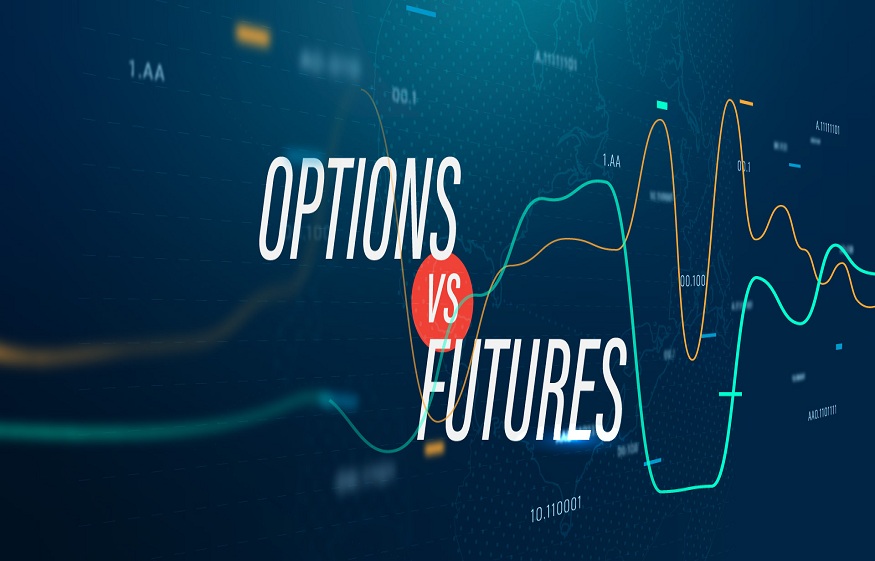Here’s Everything You Must Know Before Choosing Between Futures Vs. Options

Options and futures contracts are both standardized agreements that can be traded on such an exchange, including the NYSE or NASDAQ, as well as the BSE or NSE. Whereas a futures contract will only permit trading of the underlying asset on the date that is indicated in the contract, options could be “executed” at any time up until the point that they expire. Options could also be “expired” early. Let’s discuss the Futures vs Options in detail.
The primary distinction between futures contracts is the fact that to fulfill the terms of a futures contract, the holder of the futures contract must purchase the underlying assets, which can include commodities or stocks, on a specific day in the not-too-distant future. Options, on the contrary hand, give the person who holds the contract a choice, also known as the option, of carrying out the terms of the agreement. This distinction plays a significant part in trading Futures vs Options manner in which futures & options are invested, as well as the prices at which they are traded and how traders could profit from these financial instruments.
Futures Vs Options: What you must know
The Difference Between Right and Obligation
The execution of a futures contract constitutes a binding commitment to engage in commercial activity, which must be settled by the date stated. While options provide the purchaser with the ability, however not the duty, to carry out the terms of the contract.
Financial trading date
Any person who holds futures contracts is obligated to exchange the underlying security on the predetermined date. In the instance of options, even though there are a few different varieties, you can exercise certain choices at any moment up until the date that they are set to expire. There are some subtle differences between exercising options on indices and options on stocks, in addition to the fact that the rules for each market are slightly different. For instance, in India, an index option may only be executed on the date that it is set to expire, whereas a stock option can indeed be executed at any time up to the date that it is set to expire.
The margin
When deciding whether a financial instrument is better for you, futures vs options, margins & premiums are two factors that should be taken into consideration. When you enter into a futures contract, you will be required to pay a margin, and then when you purchase options, you will be required to pay a premium.
Whenever you buy futures, you will be required to pay a certain amount known as the margin to your broker. The margins that you need to pay for future transactions are often expressed as a percentage of the total value of all of the trades that you execute. These margins can change depending on the underlying asset. When you engage in futures trading, the broker will utilize this as protection against every loss that you may sustain as a result of the trade.
Despite this, futures and options are both potentially very dangerous financial instruments that can involve a high degree of complexity. Therefore, they are not an option that is recommended for people just starting. If you do choose to become involved, you must conduct research that is both careful and exhaustive, and you should seriously consider seeking the guidance of a financial expert before putting any of your money on the line.
Futures vs Options: Conclusion
In the end, your willingness to take on financial risk and the financial outcomes you hope to achieve will be able to direct you toward the financial derivative instrument that is most appropriate for you. Be careful to do some research and educate yourself thoroughly if you are just starting in the derivatives market; this will ensure that you have a pleasant and profitable experience.






